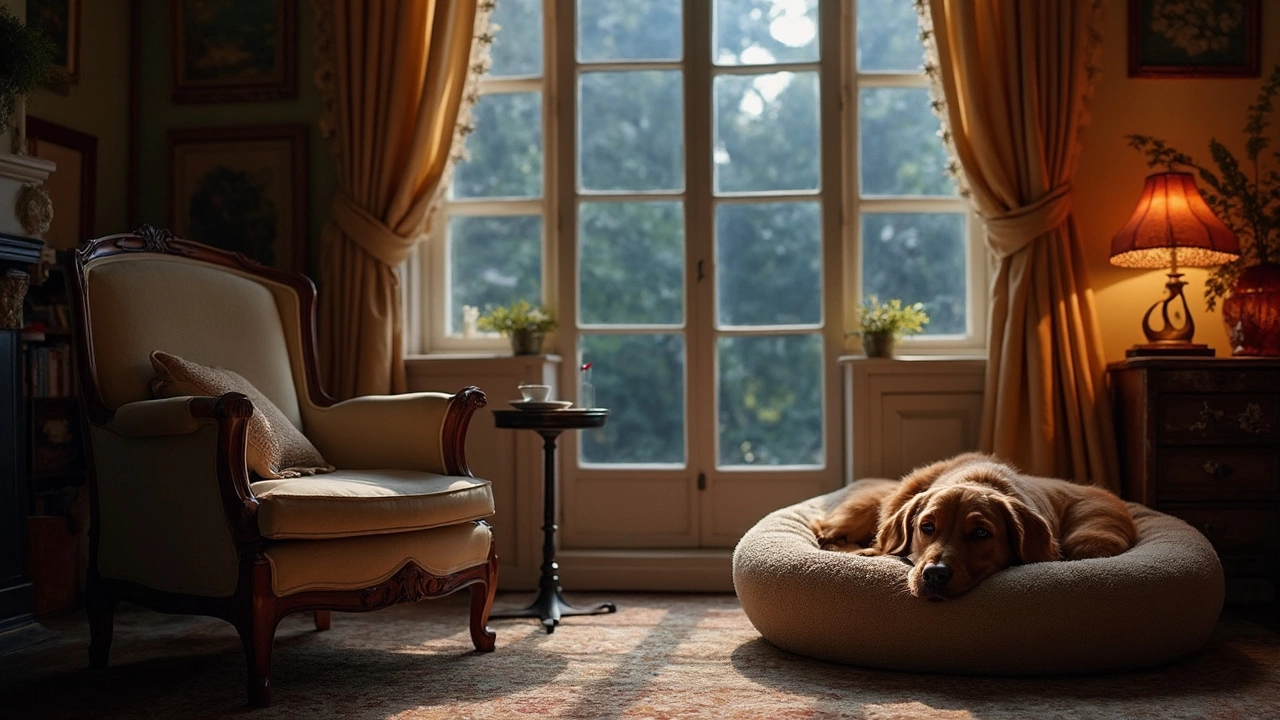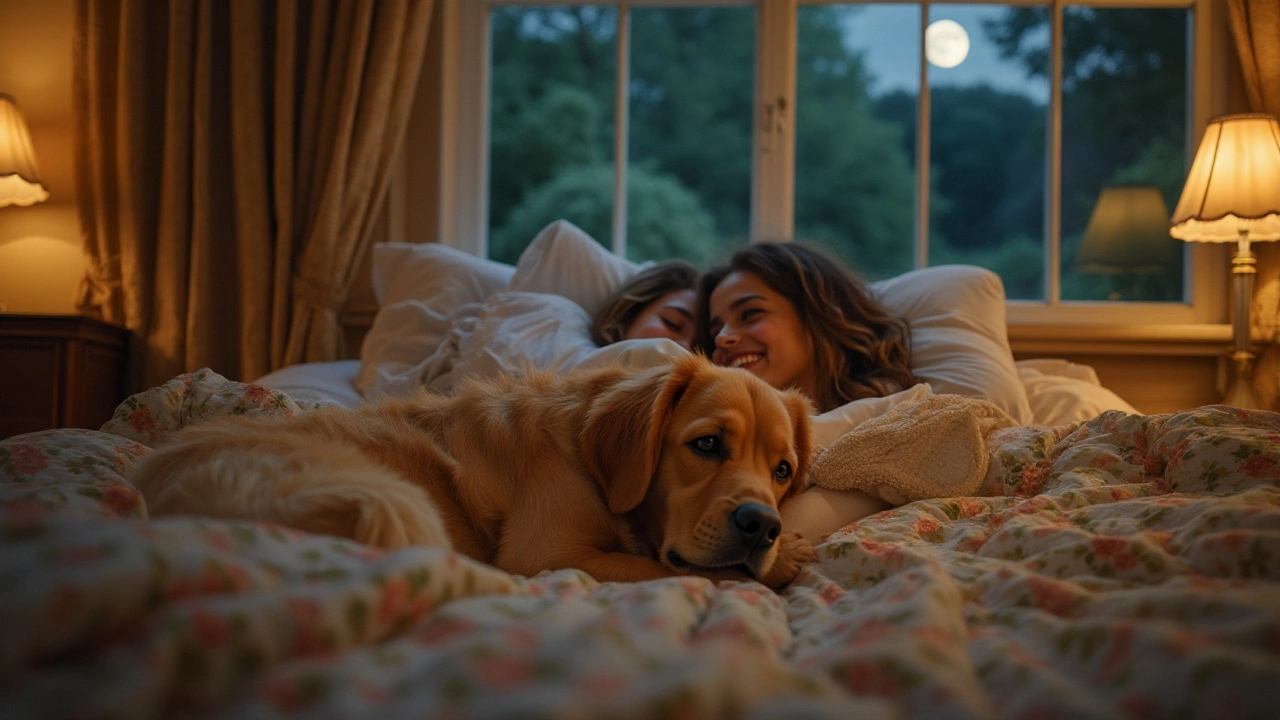Dog Sleep Tips: How to Help Your Pup Rest Better Every Night
If your dog tosses and turns or wakes up at odd hours, you're not alone. Most owners notice that a good night's sleep makes their dog calmer, healthier, and more playful. Below are real‑world tips you can start using today to give your furry friend the rest they deserve.
Why Good Sleep Matters for Dogs
Dogs, just like people, need deep sleep to repair muscles, boost immunity, and keep their mood steady. A lack of quality sleep can show up as excess barking, leash pulling, or even digestive quirks. Puppies and senior dogs are especially sensitive – a solid snooze helps a puppy's brain develop and eases joint stiffness in older pups.
Another factor is the sleep environment. Bright lights, loud noises, and an uncomfortable bed can keep a dog awake. Notice if your dog sleeps better in a quiet corner or near the family hub. Adjust the setting and you’ll likely see a calmer pup.
Practical Steps to Improve Your Dog’s Sleep
1. Set a consistent bedtime. Dogs thrive on routine. Try to put your dog to bed at the same time each night, just like you would for a child. A regular cue – like a short walk followed by a calm petting session – signals it’s sleep time.
2. Create a cozy sleeping spot. Choose a bed that matches your dog's size and breed. Orthopedic foam works wonders for older dogs, while a plush pillow feels great for small breeds. Add a familiar blanket or a piece of your clothing to give a comforting scent.
3. Dim the lights. Turning off bright lights an hour before bedtime helps melatonin production. If your dog seems uneasy in total darkness, a low‑level night light can reduce anxiety without disrupting sleep.
4. Limit late‑night treats. A heavy snack right before bed can cause a spike in energy or indigestion. Offer a small, protein‑rich snack at least an hour earlier, and keep the final meal a few hours before sleep.
5. Exercise earlier in the day. A tired dog sleeps better. Aim for a brisk walk, fetch, or a play session in the afternoon. Avoid high‑energy games right before bed, as they can make your dog too wired to settle.
6. Reduce nighttime noise. If street traffic or household appliances disturb your dog, consider a white‑noise machine or a fan. Some owners find that soft classical music calms their pet.
7. Use gentle touch wisely. Many dogs love a soft rub while they doze, but a firm pet on a sleeping dog can startle them. Learn your pup’s preferred spot – often the chest or the base of the tail – and keep strokes light.
Putting these steps together forms a simple night‑time routine that most dogs will pick up quickly. Track progress on a notebook or phone app: note bedtime, any night waking, and overall mood the next day. Small adjustments based on what you see will fine‑tune the routine.
Remember, every dog is unique. If your pup continues to struggle with sleep despite trying these tips, a quick chat with your vet can rule out medical issues like pain or anxiety. With a stable environment, a comfy bed, and a clear bedtime cue, you’ll help your dog enjoy deeper, more restorative sleep – and you’ll both wake up refreshed.
Posted By Bryndle Redding On 26 May 2025 Comments (0)
Should Dogs Sleep in the Dark? What Science and Common Sense Say
Do dogs really need pitch-black rooms to get good sleep? This article unpacks whether darkness matters for your pup’s bedtime, pulling from both research and real-life habits. If you’re unsure about leaving a nightlight on or shutting the blinds, you’ll learn what helps dogs rest best. You’ll get practical tips on how to shape the perfect sleep environment for your dog. By the end, you’ll know how to spot what makes your furry friend comfy at night.
READ MOREPosted By Bryndle Redding On 24 Dec 2024 Comments (0)
The Pros and Cons of Dogs Sleeping in Your Bed
Sharing a bed with your dog is a topic of much debate. While some cherish those cozy nights, others wonder if it's truly beneficial. This piece explores the intricacies of letting your dog sleep with you, from hygiene to emotional bonding, helping you decide what works best for you and your furry friend.
READ MORE
